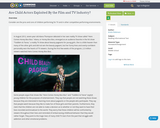
Consider are the pros and cons of children performing for TV and in other competitive performing environments.
- Subject:
- Reading Informational Text
- Material Type:
- Homework/Assignment
- Author:
- Kristin Robinson
- Date Added:
- 03/25/2020

Consider are the pros and cons of children performing for TV and in other competitive performing environments.

Solar panels, windmills, and public trash compactors are expensive, but is it even more costly to the environment to do without these green technologies?

Should kids act to stop bullying, or should they leave it up to adults?
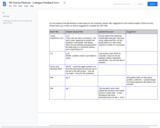
This document might be a solid example of how carefully and collaboratively open resources may be curated by teams of educators.
I left the content in as the main example here, because the form itself is very simple. I have found that district leaders are sometimes interested early on in what it "looks like" to have teachers exert this level of agency over the resources they are curating in such an initiative. I think this can also be valuable for teachers new to the work. Knowing that their professional voice could be leveraged in such a way to create custom materials can be empowering.
Specifically, this tool used as a live form between a team of teachers co-editing a text-based resource on CK-12's platform for "flexbook" creation/curation. The work of alignment to standards and local curriculum was done in a collaborative face to face setting, and then the more fine-grained edits for specific content alignment, factual correctness, and vocabulary synchronicity were done asynchronously through forms such as this one.
Finally, it is important to note that a district curriculum and instruction expert in this area was also involved in vetting some of the edits you see suggested here.
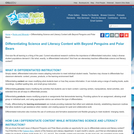
This article provides an overview of differentiated instruction and resources for teachers looking to differentiate science and literacy content in the elementary classroom.
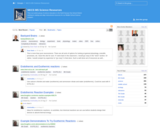
This online, shared Diigo group is an example of one strategy for collaboratively archiving, aggregating, aligning and curating open and free resources. This group was actively used from 2014-2017 to supplement another team project to curate custom CK-12 Flexbooks for all Middle School Science modules. Items were archived and shared here to be vetted for inclusion by other faculty as well as district level Science Coordinators.Some of the advantages to using Diigo in this way are as follows:
Diigo allows an extension to be easily placed directly into the Chrome or Safari browser, thereby making it handy at the very point of discovery of the resource. There is no need to copy a URL and then go elsewhere to open another tool or service for entry. In working with faculty on such projects, we have found that limiting the number of steps between discovery of a resource and its ultimate inclusion in student-facing products is valuable.
This approach also allows a very transparent running archive for the entire team, allowing your content experts to do their thing in an effective manner.
Some of the details that make this effective are the ability to comment on submitted resources, thus generating a running conversation, direct editing of submissions for accuracy and alignment, etc.
We also utilized the ability to employ a common group dictionary of tags. This is important so that tags are useful and not splintered into many such as: “7thGrade,” “7th Grade,” “Seventh Grade,” and so on.
Annotation and markup is also available right at the point of discovery, and this markup also shows clearly in the running archive of the shared group.
The service is free to use, and even the group function is free as long as the group is public-facing. In the spirit of #GoOpen, this more than fits.
All of the work can also be exported for long-term archiving if this is a need.
One key thing to note, is that we actually used state standards as tags as well. At the time, this led to the potential for a very laser-focused conversation regarding whether or not resources truly facilitated work directly on the standard, or just “in the area of the standard,” which can be a concern at times. However, these were not NGSS standards at the time, and I want that to be clear. These are all solid resources for the application, but the alignment would certainly shift when cross-walking to NGSS.
(two sample screenshots below)
https://goopen.us/wp-content/uploads/2019/04/Screenshot-2019-04-10-11.15.51.pn
https://goopen.us/wp-content/uploads/2019/04/Screenshot-2019-04-10-11.17.23-1024x725.png
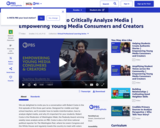
Designed for middle and high school teachers, we’ll consider how to tackle misinformation, how to analyze digital media, and why it’s important for your students. Robert Costa is the Moderator of Washington Week, the Peabody Award-winning weekly news analysis series on PBS. Costa is also a full-time national political reporter for The Washington Post, where he covers Congress and the White House and regularly travels the country to meet with voters and elected officials.
Led by PBS Digital Innovator All Star Leigh Herman and PBS Station Representative Mary Anne Lane this session highlights exciting resources and models that you can immediately implement in your classroom.
Prioritizing fun, engaging and accessible tools for your students, the series will highlight techniques for analyzing media, and amplifying student voice through authentic storytelling.
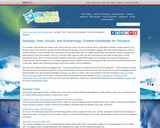
This article provides links to web sites about geologic time, fossils, and the archaeology and culture of the Arctic for elementary teachers.
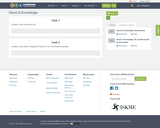

This video explains different human-computer interactions that can take place in learning. Instructional designers should be aware of such interactions when creating content.
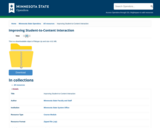
This is a downloadable object of filetype zip and size 4.61 MB.

Important emerging trends in innovation are identified, and their implications for innovation management are explored. Major topics to be discussed include the trend to open information ("open source") rather than protected intellectual property; the distribution of innovation over many independent but collaborating actors; and toolkits that empower users to innovate for themselves.

Are mummies pieces of history, or the sacred remains of human ancestors?
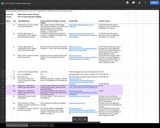
List of topics and related resources for OIT 110, Communications and Editing, at Springfield Technical Community College. Taught by Professor Eileen Cusick.

Find out some fun and unusual facts about penguins in this short and interesting article.

Should grades always come before sports?
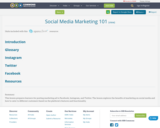
This lesson prepares learners for posting marketing ad to Facebook, Instagram, and Twitter. The lesson explores the benefits of marketing on social media and how to cater to different customers based on the platform's features and functionality.

Full-length public domain books available in open, accessible formats.
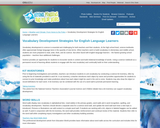
This article describes seven strategies for assisting English Language Learners with science vocabulary development.

With pressure to perform at the highest level, are athletes the only ones responsible for doping in sports?